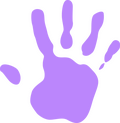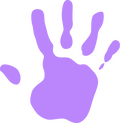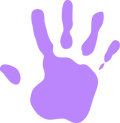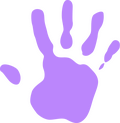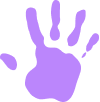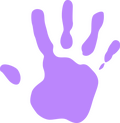Melius
The average person has 26,390 days on Earth. Melius (Latin for "Improvement") is designed to help individuals map out both their near term and long term objectives, track progress, manage time, and find balance between the Five Focuses for a more complete life.The Melius framework is designed to help translate the proven business technique of OKRs to one's personal life. We have opted to use Notion as the primary platform enabling quick implementation of the framework, as our easy to use template provides users with the ability to capture notes, track tasks, and develop one's own personal mission; in short your own personal operating system.
Personal OKRs
OKRs are an effective goal-setting and management tool for defining what you want to achieve and what milestones you’ll need to meet in order to accomplish it. Personal OKRs translate this idea from the business world to the individual level by streamlining the tracking process, incorporating task tracking, and providing support for longer term "personal mission" driven objectives.

Objectives
What you want to achieve. Significant, concrete, action-oriented, and (ideally) inspirational. When used properly objectives are a shield against wasted effort and unfinished work.
Key Results
What we do to achieve our Objectives. Specific, time-bound, aggressive, yet realistic. They must be measurable and verifiable. You either complete a key result’s requirements or you don’t; there is no gray area, no room for doubt.
Accountability
We all need help sometimes to get ourselves across the finish line. Built into Personal OKRs is the ability to invite someone in your life to help keep you accountable to your progress. Schedule regular check-ins to make sure you are always staying on track.
Mission and Values
What are you here to do? What are the principles that guide your day-to-day decisions?
Melius helps align the work that you do every day with the foundations that make you who you are.
Haven't found your mission yet? That's okay, we can help with that too.
Five Focuses
After years of refinement we've found that at the end of the day to achieve a "balanced life" there are really five focus areas that people need to split their energy across. These five focuses can help guide the development of personal OKRs as you look to understand where you have opportunities to grow and develop.
Health
Physical and mental health are the foundations of a successful life.
"Take care of your body it's the only place you have to live."
- Jim Rohn
Finance
Love it or hate it, money is a key component in maintaining a balanced life.
"The desire of gold is not for gold. It is for the means of freedom and benefit."
- Ralph Waldo Emerson
Creative
Creativity is what helps make the world such a beautiful place. What will you create, even if no one sees it but you?
"Creativity is seeing what others see and thinking what no one else ever thought."
- Albert Einstein
Productive
The brother of creativity, productivity is the effort that we focus into our daily work so that we can get things done.
"Focus on being productive instead of busy.”
-Tim Ferriss.
Community
Foundational to what makes us human, community comes from connecting with others. Friends, family, local groups, or even global movements.
“Alone, we can do so little; together, we can do so much”
- Helen Keller
Brain 2.U
The human brain is a marvel. It is what has enabled us to become the most powerful species on the planet. Yet despite this, there are somethings that it's just...not really made to do. By offloading some of the work from your biological brain to a digital brain, you can capture your personal notes, and make sure that you don't forget about tasks, events, ideas, or even that one thing that you were supposed to get at the store on your way home.
Digital Systems
Melius is the combination of several different personal management systems, including OKRs, CCC, and the Trident Method. We've provided some additional details on these systems below, as well as a couple others that we recommend yet don't quite fit with how Melius is configured today.
OKRsMade popular by John Doerr, OKRs are an effective goal-setting and management tool for defining what you want to achieve and what milestones you’ll need to meet in order to accomplish it. Each objective has a set of key results that enable you to understand what is needed to achieve your stated objective.
Capture Configure ControlThe 'Capture Configure Control' method (or 3Cs) was developed by Cal Newport as part of his Productivity Funnel. This method is based around the idea that you should first capture anything that is coming into your brain that you might need to retain (such as a quick capture task). Then you review what's been captured throughout the day and configure how you want to action the various different pieces of information. This then allows you to control the execution of each task and ensure that they've been done in the correct priority/order.
Trident MethodOtherwise known as 'Year at a Glance', the Trident method is a technique that was introduced as part of bullet journalling, and introduce to us by Ali Abdaal. We use this in the 'Quarter at a Glance' section of Melius to help users better understand what their next quarter is going to look like at a high level.
Living Life
Life and time is limited. There is no point in trying to hide from the fact that we all have a maximum number of days to get in as much life as we can.
"Reflect on what you've done every month, every week, every day. For if you're not happy with it, work to understand why. You get the chance to try again tomorrow."
"Don't spend too much time fussing over every little thing when using this. Use it for what you need, then put it away and go outside for a bit."

FAQs
What exactly is "Melius"?
Melius is a framework that has been developed by the team here at Reflected based on our experiences in business and personal productivity, with influences from some of the best in the business. We wanted to make this framework available to as many people as possible to help safe guard the most precious resource that each of us have...time.
Why do I need to sign up for something else to use the framework?
While we would like to eventually shift the framework over into its own dedicated app to enable faster more tailored updates, right now we just don't have the resources to do this, so instead we've developed a free to use template that is available via Notion. Notion is a fantastic web app that uses a set of building blocks for creating essentially anything that you might want to use.
Some examples are:
documents, databases, knowledge bases, project management systems, notes, etc.
Why should I trust this?
That's a great question. We've been successfully using this framework both in work and our personal life for several years and we've seen great success. We just wanted to share it with as many people as possible, hence why we made it as free as we could.
How is this free?
Well...Notion is free for individuals, and we wanted to make sure as many people could try using this framework as possible. If you'd like to support the team here at Studio Palouse, you're more than welcome to contribute something back via our donations page.
Finding Personal Purpose

Finding your personal purpose and the mission that stems from it, is a challenge for most people. This personal purpose, "Your Why" as author Simon Sink would say, is the deep motivation that fuels your life, and gives direction as you navigate the world, and everything that comes along with it. Very few people are lucky enough to understand their purpose from an early age and know exactly what they want to focus their energy on for the rest of their lives. My father was one of those lucky individuals, knowing since he was a child that he wanted to be a physician, like his own father. I on the other hand was not so lucky. In fact, from an early age I mostly just believed that I did not want to be a doctor, and that I wanted to "find my own way." I just...had no idea what that was going to be.When I was in middle school, I thought that I would somehow get rich, and simply wouldn't have to worry about things once I had money. Then in high school I started to realize that money probably wasn't everything, and that I would end up figuring things out once I made it to college. After all, college was where people "found themselves" and realized what they were going to do for the rest of their lives...right? Yet, as I made it to the end of my senior year at university, my degree almost in hand, I felt like was even further away from understanding what I wanted to do with my life, not closer.Up until the end of college there had always been "the next thing." Elementary school, then middle school, then good grades in high school so you could go to university, then good grades in university so you could get a solid job. There had always been a path, a next step to achieve. But at the end of said path, I still hadn't figured out what I really wanted to do. But I had a degree, and I had always had a strength in working with technology, so I found myself a job in tech that would help at least pay the bills (of which I suddenly had a lot of). I also suddenly had a chance to start exploring different hobbies and re-discovering activities that loved doing, but either had to put on-hold while at school or had simply never had a chance to try before.I had started to tap into my strength and develop a profession that would allow me to get paid. I had found some hobbies that I loved doing in my free time. I even had started on a couple passion projects where I could blend my strength in tech and some of the things I loved like personal development and physical fitness. Yet, I still didn't feel like I had found my "why" or knew what I really wanted to do with my life. I knew that I wanted to do work on something impactful, solve a "real" problem, I just wasn't sure where I could do the most good with the skills that I had.Now I know it doesn't take much to find a problem facing the world today. You simply open a news site, and you will be flooded with so many problems that you will want to curl into a ball and go hide somewhere under a rock. But which of these problems are the most pressing, and which are problems that I could have an influence on? While there are many resources out there that showcase the most pressing problems we face today, one resource that I will recommend is 80,000 Hours. 80,000 hours is approximately the amount of time that someone will work in their life, and the 80,000 Hours website is dedicated to helping identify which global issues one could potentially spend those 80,000 hours working on that would be the most impactful.While it took time, through 80,000 Hours and other resources like it, I finally began the journey of uncovering what was sitting at the confluence of my strengths, what I loved doing, what I would get paid for, and what problems the world needs solved. Now the realization of my purpose and personal mission still didn't hit me like a shooting star falling from space. It was more like uncovering a fossil, with patterns and connections slowly coming together to reveal something distinct, and for me, powerful. Maybe it is ironic given my original desire not to go into medicine, but after many long talks, and a lot of self-reflection, I found that I really wanted to help others improve health through technology. Specifically, I wanted to start working to remedy loneliness in the modern world.While this might not be an "original" idea, no one said that your purpose can't be something that others also want to achieve. In fact, if it can help find like-minded people, all the better. But it does have to be your purpose that you discovered and recognized in yourself. For me and my purpose, it was a long road to discovery, and I suspect it will be an even longer road to actualization, but hopefully from this journey I can help share a framework that others might be able to use as a shortcut to discovering their own purpose and personal mission.Take some time to write down your strengths, what you love doing, what you can get paid for, and what problems the world needs solving, and see where there are threads that connect them. In that confluence, there is a good chance that you will start to find the pattern of your purpose. Once you've found it, or you at least start to think you have some idea of what it might be, make sure that you document it somewhere that you can see it daily and reflect on it, and if needed refine it. With the Melius framework, we put our mission right at the top of the home page so it can be seen every day, and it can help guide our objectives and actions.
Tools
About
My name is Jonathan Butler (known by my friends as JB) and I'm the primary builder of Melius and founder of our parent group Reflected . I'm also a product manager at Nintex and a no-code solution architect.After almost ten years of working with organizations ranging in size from ten-person shops all the way up to fortune 500 enterprises, I have become a social technologist and found a passion in discovering how people from all avenues use technology to improve their daily lives.
Contact
Thanks for reaching out! We'll work to get back to you as quickly as possible. Cheers!
Donations
While Melius wasn't built to make money (hence why it's a framework and not an app), if you feel like helping with the hosting cost and/or further development of "features" for the Melius template/framkework, any support is greatly appreciated.
